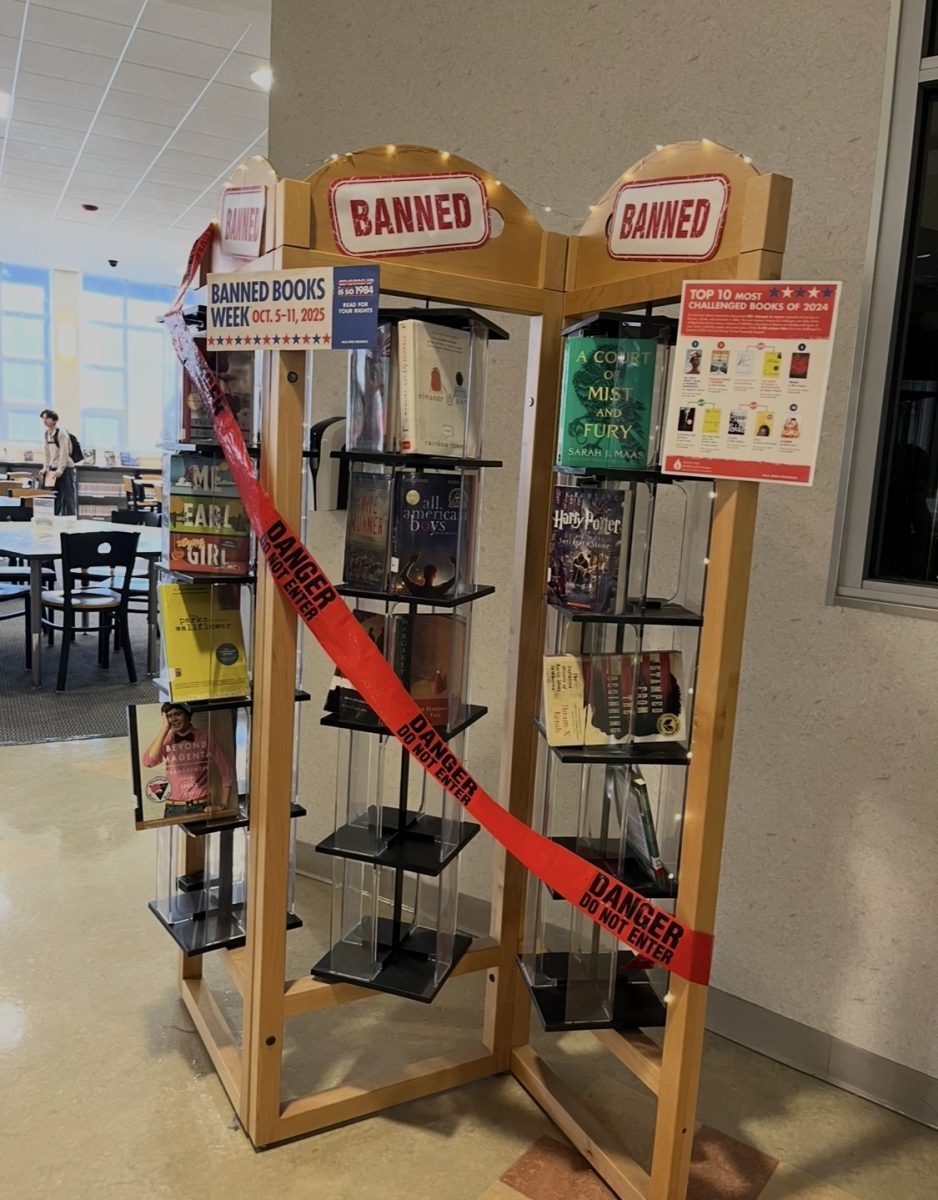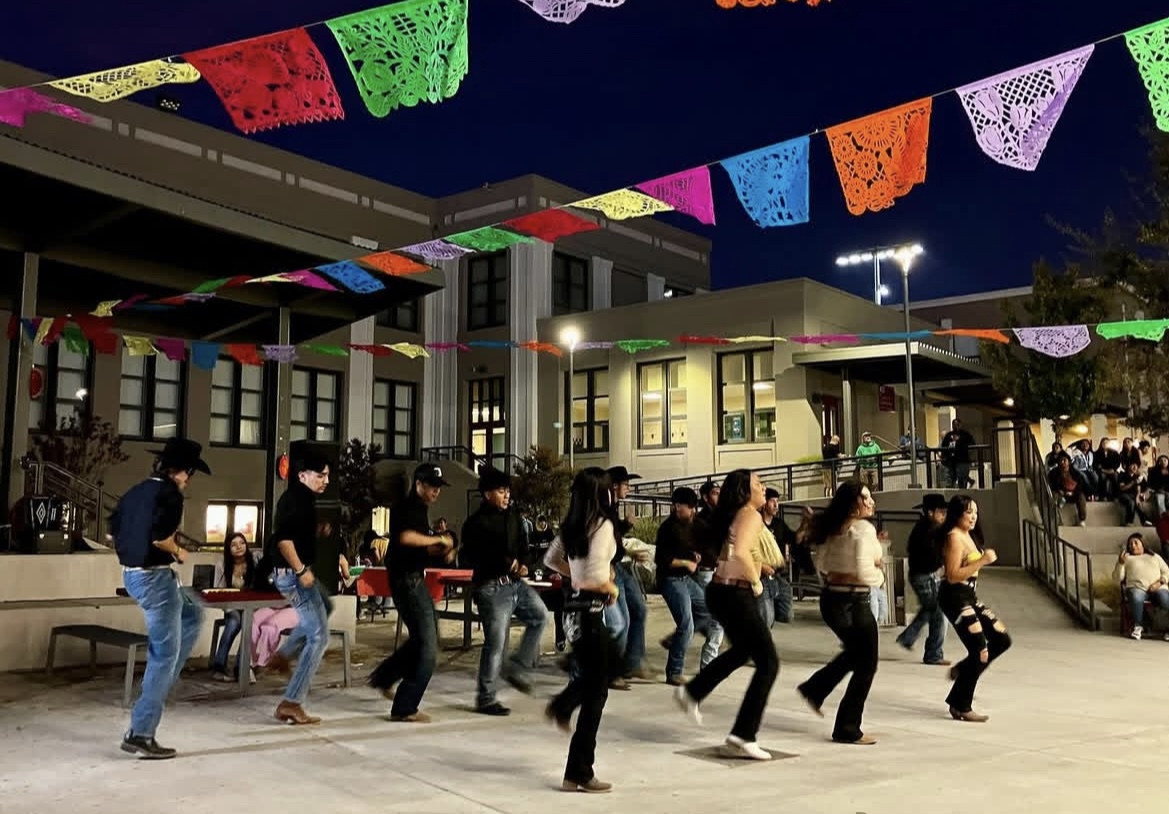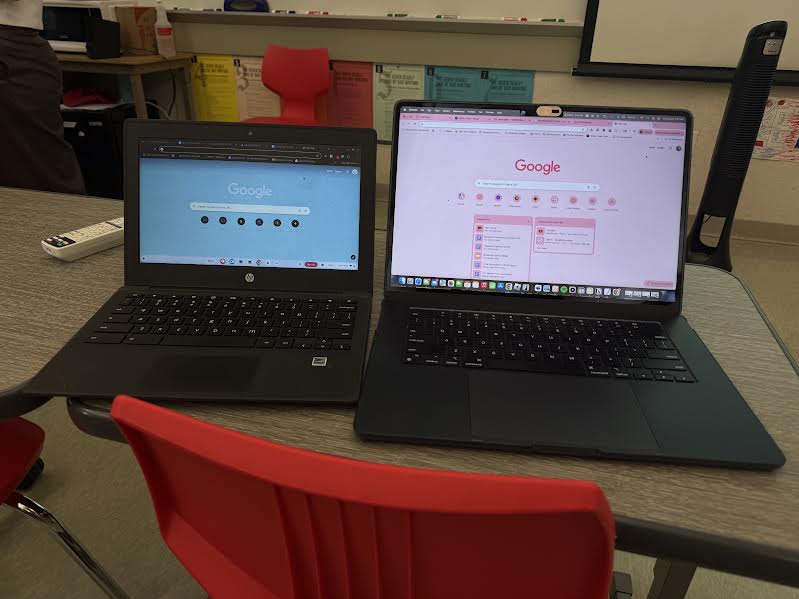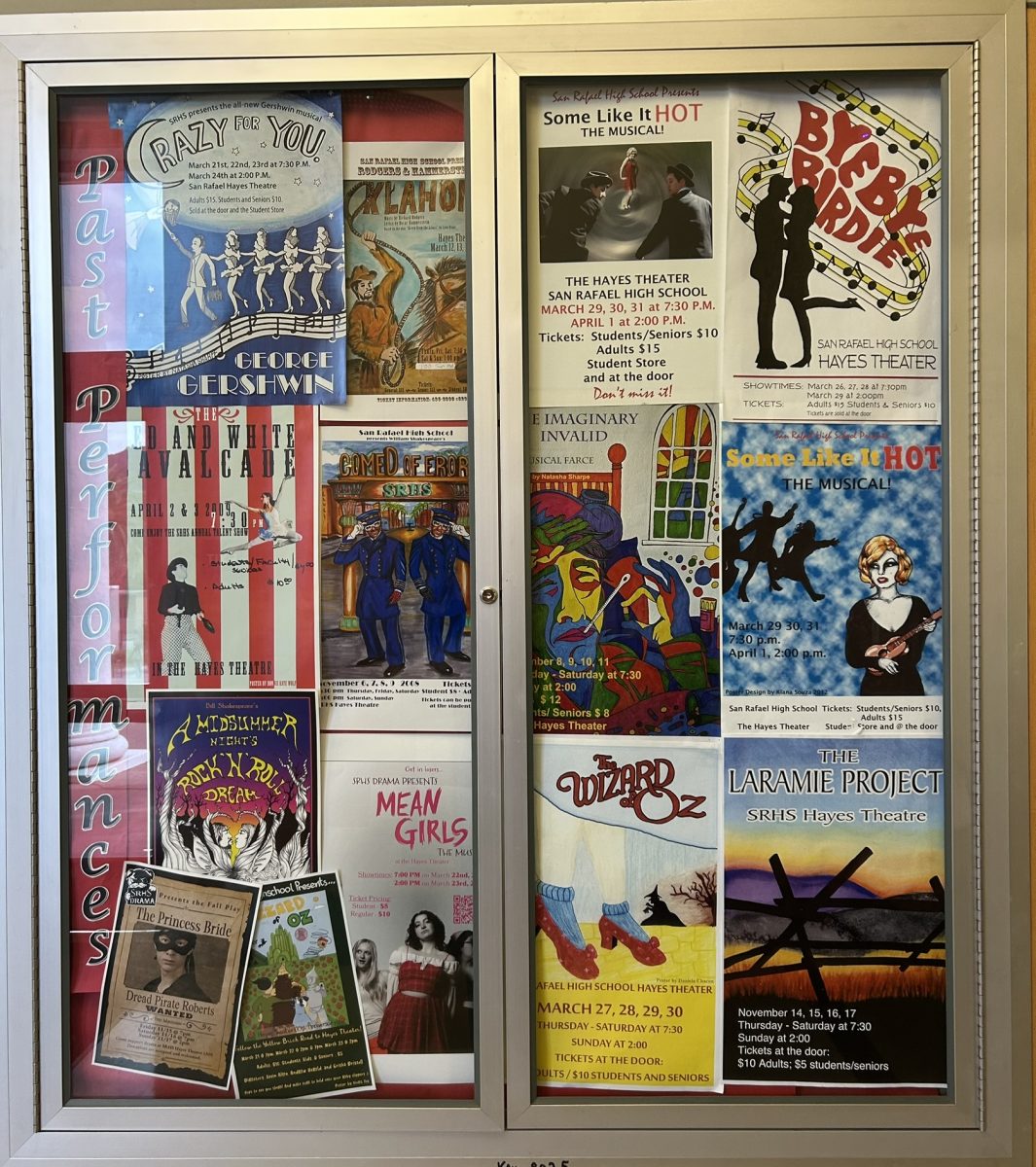The 2020 Song Review Project
December 3, 2020
Editor’s Note: I asked each staff member to write a review of a song that was important to them in 2020. They were not limited by genre or release year. Please enjoy the reviews (and the accompanying playlist). -Simmons
“Hypnotize” by Notorious B.I.G
The 1990s was an explosion of hip-hop, one of the biggest musical revolutions in American history. During the ‘90s, the East Coast and West Coast violently battled to see who could produce bigger hip-hop tunes. The Notorious B.I.G. was a prominent figure for the East Coast, producing multiple number one hits like “Hypnotize.”
Hypnotize’s foundation is a funky, old school beat with an incredible bassline. Produced by P. Diddy, who also provided adlibs, B.I.G. works his magic. His flows and delivery on the track are impeccable. “At last, a n**** rappin’ bout blunts and broads; t*** and bras, ménage-à-trois, s** in expensive cars” is just one example of many lines in which B.I.G. switches the flow, while also rhyming every syllable.
The effortlessness of his rhymes and flow “hypnotize” you, along with the catchy not-too-over-the-top chorus. You get pulled in every bar with his offbeat flows as he flexes his wealth. “Escargot, my car go, one sixty, swiftly.” Throughout the song, B.I.G combines French into the lyrics, dominating English so much that he switches languages.
One week after publishing this song, B.I.G. died. On the day of his funeral, “Hypnotize” was suddenly blared at full volume from nightclubs across the somber streets of Brooklyn, causing everyone to dance and sing along. It became no longer a mourning of his death, but a celebration of his life and the joy he brought them.
-Acer Cristea
“Hate it or Love it” by 50 Cent and The Game
Featuring both The Game and 50 Cent, “Hate it or Love it” is one of the most respected and idolized songs from the 2000s, in which the two depict their come-up from underprivileged backgrounds to a life of success and riches.
Newer rappers often illustrate their success through sexist remarks, drug addiction, and other “cons of being famous.”
The story told by 50 Cent follows his childhood and traumatic experiences. Sequentially, he caught his mother kissing another woman, sang about his absent father “committing felonies,” and spoke of his desire to leave his neighborhood.
The Game also touches on his youth and how growing up in Compton taught him not to wear the “wrong colors.” Carrying a gun was normal for him, as he’d seen many friends die in front of him– something most teenagers haven’t experienced.
Later, The Game raps about returning his success to his mother by paying her rent and how she has a “red bow on that brand new Benz.”
The song reflects deep thoughts The Game has about the world, with arguably the most insightful lyrics in the song: “Sitting in the Range, thinking how they spent 30,000,000 dollars on airplanes, when there’s kids starving.” Recent rap music encompasses sex, drugs, and violence, making these lines notable because they display The Game’s multiple dimensions.
Back to the title, “Hate it or Love it,” this song fully embodies what it means to be famous, and explores this concept through allusion, with a rhythmic tone.
-Margo Cumming
“Stan” by Eminem
Eminem’s “Stan” from the Marshall Mathers LP is a highly influential song about mental illness and fandom, even creating a word derived from the main character, Stan. The now 20-year-old song by Eminem is about a mentally ill superfan. “Sometimes I scribble addresses too sloppy when I jot ‘em,” Stan says in a letter to Eminem, the sloppiness alluding to him not being fully there mentally.
Stan, who deeply connects himself to Eminem not just as an artist but as a person, writes many letters to Eminem trying to catch his attention. He connects with him because of their rough childhoods, as well as their fatherhood.
When Stan never gets a response from Eminem, he starts to blame himself, and ultimately kills himself. Stan’s growing anger towards his idol is fueled by his mental instability. It’s a common cycle that many people deal with, because when you don’t feel like enough, so much of what you experience will reaffirm your beliefs. In Stan’s final verse he cries, “It’s been six months, and still no word- I don’t deserve it?” showing his anger not only at Eminem but also at himself. Stan records his final message on a cassette as he is driving himself to a bridge to kill himself. After expressing his anger, he turns on his hero, making an attempt at causing pain to Eminem like he feels: “I hope you can’t sleep and you dream about it, I hope your conscience eats at you and you can’t breathe without me.”
-Will Davison
“Cat’s in the Cradle” by Harry Chapin
“The Cats in the Cradle” is a song sung in a story telling type of way, which showcases the relationship between a boy and his father.
This song was written by Chapin’s wife for their son Josh, so that he understands that Chapin and his wife will try their best to be the best father he can be. Chapin knows what it’s like to not have a close relationship with his dad and it shows in the song.
The song starts with the birth of Chapin’s son, and as the song progresses, it shows how a lack of commitment as a parent can affect a child. The child always asks his dad to hang out with him, but he is always too busy with work to spend time with him. He always tells his dad, “I’m gonna be like him, yeah, you know I’m gonna be like him.” He ends up exactly how his dad was, with no time to spend with his father because of how much he is working.
Another line from the song is, “Little boy blue and the man on the moon.” The little boy blue is the child, and the man on the moon is his father. The man on the moon is a metaphor for the distance between the child and his father.
This song shows how you should always make time to spend with your child no matter what. Having a good relationship with your family is far more important than any job.
-Daniel Dunn
“Fine Line” by Harry Styles
In the early years of his career, Harry Styles toured the world with arguably the most successful boy band of all time, One Direction. After parting ways in 2015, Styles has grown to be the most successful ex-band member. Since then, Harry has created his own genre, incorporating soft classical rock as well as indie-inspired themes.
His newest album, Fine Line, consists of 12 tracks including his song “Fine Line.” Similar to Styles’s first solo album, there are upbeat tracks and mellow, piano-based songs as well. “Fine Line” concludes the album and features a soft guitar sequence which later morphs into an orchestra of trumpets. Many are calling “Fine Line” the new “Sign of the Times” (Styles’s most famous song and single). Both songs start with one instrument played softly alongside Harry’s impressive vocals and towards the end, an array of passionate tones transform the songs into loud, zealous combinations of sound.
In the first line, Styles sings, “Put a price on emotion, I’m looking for something to buy.” Other artists may choose a classic line like, “all I feel is numb,” but Styles has always been one to spin beautiful webs of words into his art. For example, in his famous song “Kiwi” he sings, “she goes home to a cactus,” instead of flat out saying “she goes home to a prick.”
Dedicated fans of Harry have formed theories that this album focuses on Harry’s acceptance of himself. He writes lyrics such as, “I’ll try to shake this soon, spreading you open,” in order to show his frustration of feeling trapped in his current media identity. Over half of the tracks on his albums portray paramount emotional pain. As an unlabeled artist, Styles is constantly under media interrogations regarding his sexuality and many believe this album is a ballad to himself.
-Sophie Ekman
“This is America” by Childish Gambino
Donald Glover, famously known as Childish Gambino, includes an important social critique in his most successful song, “This is America.” I believe it should be the anthem of our social climate today, not only for its musical genius, but also it’s important social critiques.
The song begins with upbeat, choral voices, while a guitar strums rhythmically along with light chanting in the background. Lyrics like “girl you got me dancing” and “we just want to party,” continue for almost a minute before the song abruptly drops into an intense, hip-hop beat as Glover firmly states, “This is America.” His contrast with both words and melody as he raps phrases such as “guns in my area” and “police be trippin now,” is an exciting plot twist-type feeling, compared to the happy and enchanting sound in the beginning.
As a final tribute to his important message, he wraps up the song with an eerie alarm sound and light beats over no instruments as he states, “You just a black man in this world.” He then compares a black man to a big dog who has been “kenneled in the backyard” stating that this is “no proper life to a dog.”
Glover utilizes a wonderful mix of traditional West-African music, gospel, and hip-hop styles, cleverly transitioning between them based on the mood of the lyrics throughout the song, while uncovering a vital message about black oppression in America, and how many people do not face the realness of its existence today.
-Elaina Greenawalt
“Hotel California” by The Eagles
If there was ever a song to drive to late at night, it would be “Hotel California.” The song was released as a single by the American rock band The Eagles in February 1977. It was awarded the Grammy Award for Record of the Year in 1978, and has been performed 1,038 times live.
Beyond its widely acclaimed critical success and display of musical mastery, “Hotel California” has also achieved what few songs have: becoming timeless. Teens and younger-adults today still listen to the song, vibing to the enthralling tune just as their parents did.
While there is no specific aspect of the 6:31 track that can be credited with this achievement, there are a few likely factors as to how it has remained remarkably mainstream for over four decades.
Firstly, the broadness of the lyric’s interpretation gives it reach. Various interpretations have been given by fans and critics alike, The Eagles themselves describing the song as their “interpretation of the high life in Los Angeles”. These famously insightful lyrics capture “the excesses and self-destructive behavior that has become status quo in the rock world,” providing a cinematically vivid and metaphorical depiction of the widespread struggle of addiction.
The other reason for the song’s timelessness comes from its iconic guitar coda, which was voted the best guitar solo of all time by readers of the Guitarist Magazine 1998. The flow of the song is easy to listen to, granted it’s long, but something new and interesting keeps coming up. It is this distinctive tune that allows “Hotel California” to remain recognizable and memorable today.
-Emma Marti
“Rhiannon” by Fleetwood Mac
Fleetwood Mac has pulled off an extremely difficult task when it comes to the oversaturated music industry: they have produced fantastic songs and albums which have not only redefined pop music, but managed to make a lasting impact on their fans’ childhoods and lives.
The word “mystical” may come to mind when thinking of British-American rock band Fleetwood Mac’s lead singer, Stevie Nicks, whether it be her flowing shawls or her mysterious black outfits. Crowd favorite “Rhiannon,” the fourth track off of the band’s 1975 eponymous album was written by Nicks, who was inspired by the main character in Triad: A Novel of the Supernatural by Mary Leader.
The lyrics in the verses tell the story of Rhiannon, using similes and metaphors such as, “She is like a cat in the dark, And then she is the darkness,” in order to emphasize the cryptic and otherworldly nature of the character. The catchy guitar riff which repeats throughout the song is in the key of A minor, setting the mood for the lyrics. The haunting harmonies in the chorus put the listener in a trance as Stevie’s raspy vocals carry the song and add an edge to the lyrics. The enchanting line, “Would you stay if she promised you Heaven?” shows the enticing and tempting side to Rhiannon.
This wonderful song has touched the hearts of millions of listeners across the world, with bohemian-sounding undertones that are sure to calm the soul.
-Melissa McNair
“Lose Yourself” by Eminem
“Lose Yourself” was written by Eminem and was on the soundtrack for the 2002 movie “8 Mile,” which he created and starred in. It was the very first Eminem song that I heard and it is the reason why I love all of his music to this date.
The song starts out with a soft, melodic piano and the sound of a crackling record player which makes you think it is going to be a sad song. However, it quickly transitions to an upbeat guitar rhythm, during which Eminem gives a motivational speech. The main instruments heard are a drum kit, piano, and guitar, with synthetic orchestral sounds played throughout.
Eminem doesn’t show off his amazing ability to rap fast, but instead takes you into the mind of a struggling “B-rabbit,” the character he plays in “8 Mile.” The interesting aspect of this song is that Emineim switches between the pronouns he and I. He is talking about “B-rabbit,” but since the movie is a true story based on events that happened in Eminems’s life, “B-rabbit” actually represents Eminem. So when he says things like, “His soul’s escaping, through this hole that is gaping,” he is really talking about himself.
Even though you don’t get to experience Eminem “spazzing” on a beat, you hear true passion in his voice and bar-heavy rhyming schemes. For instance, in the first bars of the song, Eminem comes out with an amazing rhyming sequence and at the same time is able to tell a story about the time he choked in his first rap battle.
Overall, this song is an old-school rap masterpiece that is incredibly engineered and I recommend it to anyone who enjoys this genre.
-Nick Salomon
“Seven Nation Army” by The White Stripes
It starts quiet. One riff from a semi-automatic 1950s electric-guitar, not a bass, leads you in with seven, simple beats. Suspense lurks around the metronomic beat of a drum, grounding the melody, leaving you to thirst for more.
It was the White Stripes 14th album Elephant (2003). The premier song “Seven Nation Army” took people by storm, making billboards across the worlds and winning a Grammy for best Rock Song of the year. The alternative garage rock band combined their musical strategy with rebellious lyricism to produce a song highlighting the sweet revenge you get when you incite toxic gossip. “I’m gonna fight them off/A seven nation army couldn’t hold me back,” sings lead singer Jack White through the raspy, autotuned voice.
The storyline follows White as he returns to his hometown only to be faced with the judgmental comments and gossip of those in his community. The anticipated outburst of emotions he feels builds in the melody as he sings in a call of anger, “And if I catch you coming back my way/ I’m going to serve it to you/ And that’s not what you want to hear/ But that’s what I’ll do.”
And then… As you have reached the peak of anticipation, the simple, seven beat riff turns up to become a full rock anthem. The power of the electric guitar is what shakes the audience. It’s loud, it’s wild, it is exuberant, but suddenly, It’s quiet. The riff is that of the beginning, and it starts again.
-Ayiana Scott
“All I Want for Christmas is You” by Mariah Carey
As the holiday season approaches, Mariah Carey’s renowned classic “All I Want for Christmas is You” once again climbs its way back up the top charts. The catchy single was one of three songs released in Carey’s 1994 holiday album, “Merry Christmas.” Created in part with former collaborator Walter Afanasieff, Carey’s fourth album was unique because many popular artists did not create holiday music until the end of their careers.
While the song didn’t find success at first, the increasing access to digital music and the marketing efforts of Sony Music Group put the festive track on a path to success for years to come. The key to the song’s popularity is its old fashioned message and simple, relatable lyrics. Specifically, the song uses a chord that also unmistakably appears in Irving Berlin’s “White Christmas.”
Carey described her song in 1994 saying that, “It’s very traditional, old-fashioned Christmas.” This connection grasps the attention of older folks, while younger people tend to enjoy the upbeat and happy tone of the song. Creating a seasonal hit for everyone to enjoy allowed “All I Want for Christmas is You” to become the most-downloaded holiday single of all time.
-Wilson Skinner
“Eating Lunch in My Car” by William Rogue
William Rogue, otherwise known as Stewart Allan, is from Glasgow, Scotland and has been a part of 3 different bands, with 14 albums in total. His song, “Eating Lunch in My Car,” which is a part of his 2016 album Lemons and Limes, highlights the difference in the American lifestyle compared to other cultures.
The song starts off with a strong harmonica solo, creating a country/folk feel. The solo then ends as Allan begins to sing. “I got a big old sandwich, I got a cup o’ joe.” He almost shouts the lyrics, telling the story of someone on their lunch break from work.
Throughout the song, a laid-back yet solid bassline and drumbeat reflect the repetitive chorus, “I’m sittin’ in a parking lot, eatin’ lunch in my car.” However, the plain lyrics encapsulate the overall feeling of mindlessness as he goes through the steps of the day. In the climax of the song, Allan realizes there is another person in the parking lot eating lunch in their car as well, showcasing the self-induced separation of the lunch break. Another harmonica solo starts, this time combined with the repeating chorus as the song comes to an end just as suddenly as it started.
-Izzy Sonnet
“Phone Numbers” by Dominic Fike
Dominic Fike is on the come-up. If you haven’t already heard his music, you will soon, whether it be on the radio stations, or at the next Rolling Loud Festival. Projected to be a Justin Bieber 2.0, his style is the new standard. Although he doesn’t have the cleanest record or the easiest backstory, you would never be able to tell from his upbeat, yet chill energy he expresses in his music.
One of his most popular singles that gained him much popularity, “Phone Numbers” reveals that same upbeat rhythm that Fike has become so known for. It features his consistent and steady flow, along with consistent electric guitar strums and an introduction of drums during the chorus. Differing greatly from the Soundcloud rap music he used to produce as a local artist in Florida, this song is one of the few that set him up for his deal with Columbia Records while also placing him at number 15 on the NZ Hot Singles Chart in July 2019. His lyrics are repeated constantly throughout the song, “Can you break bread with me,” mocking those who have reached out to him since he blew up.
His take on it is to continue to “switch phone numbers like clothes,” and avoid speaking to these people, hence the title of the song, “Phone Numbers.” Despite the toxic theme of the lyrics, one listening can’t resist vibing to Fike’s soothing voice paired with the groovy beat.
-Sarah Williams






































